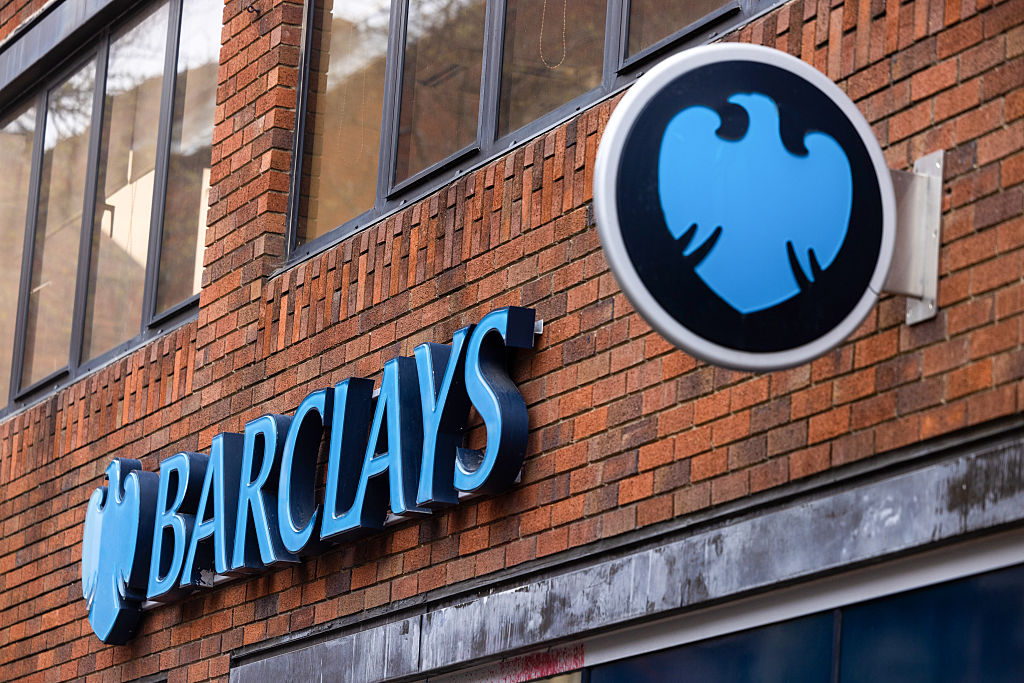Barclays warns of significant rise in social media investment scams
Investment scam victims are losing an average £14k, with 61% of those falling for one over social media. Here's how to spot one and keep your money safe


Get the latest financial news, insights and expert analysis from our award-winning MoneyWeek team, to help you understand what really matters when it comes to your finances.
You are now subscribed
Your newsletter sign-up was successful
Want to add more newsletters?

Twice daily
MoneyWeek
Get the latest financial news, insights and expert analysis from our award-winning MoneyWeek team, to help you understand what really matters when it comes to your finances.

Four times a week
Look After My Bills
Sign up to our free money-saving newsletter, filled with the latest news and expert advice to help you find the best tips and deals for managing your bills. Start saving today!
An increasing number of people are falling victim to investment scams, which according to Barclays has gone up by 23% year on year.
But this isn’t the first time investors have been caught up in a battle against scammers. Just recently, the Pensions Management Institute found that investment scammers stole over £2.6billion from nearly 100,000 customers between 2020 and 2023, with roughly £13million lost each week.
Other scam warnings have also been rife in the last couple of months, with the rise of banking copycat websites, holiday scams, Amazon cold calls, recruitment scams on WhatsApp, crypto scams and fake dating profiles.
MoneyWeek
Subscribe to MoneyWeek today and get your first six magazine issues absolutely FREE

Sign up to Money Morning
Don't miss the latest investment and personal finances news, market analysis, plus money-saving tips with our free twice-daily newsletter
Don't miss the latest investment and personal finances news, market analysis, plus money-saving tips with our free twice-daily newsletter
We look at how investment scammers are targeting customers and how you can protect yourself from such frauds.
Investment scams on the rise
New data from Barclays reveals a troubling surge in investment scams. The data shows that in 2023, one-third of all money lost to scammers came from investment scams, which have increased in volume by almost 29%.
There has also been a sharp spike in investment scam-related cold calls, which have grown by a staggering 193% in the last five years, according to data from the Financial Conduct Authority’s (FCA) consumer helpline.
On average, victims lost about £14,313 per scam, with men being hit the hardest at roughly £16,206 per claim. Millennials, especially those between the ages of 21 and 40 are also at risk, often falling for promises of high returns on investments.
Alarmingly, nearly half of the investment scam claims are made by young people, and one in ten people in the UK knows someone who has fallen victim to such a scam.
What’s adding fuel to the fire is scammers using social media to prey on those who believe they’re investing in their future. About 61% of these scams are happening on social media sites through fake and unverified financial adverts, which are ripping people off.
One in five young people are being approached by scammers on social media, which is why Barclays is highlighting the importance of being vigilant.
Stephanie Mac Sweeney, head of fraud strategy at Barclays said, “It’s worrying to see such a rise in investment scams – with victims often heartlessly scammed out of large sums of money that they have been saving for their future. The banking industry works hard to educate, identify and intercept scams, but the only way to drive real change is to target these scams at their source.”
How to spot an investment scam
The FCA's consumer helpline data shows that investors have saved £2million by identifying when investment opportunities were fake.
While it’s not easy to spot investment scams, especially when you’re shopping around for the real deal, here are a few ways you can catch any fishy behaviour and protect yourself. Remember, there’s no such thing as being too careful.
Too good to be true
The most common trick in the scammers’ playbook is to get their potential victims to start small and invest tiny amounts of money but with high rewards. This convinces the person being targeted that it’s legitimate, and over time, small amounts become larger and then all of a sudden, a huge sum is lost to these frauds. So if an offer seems too good to be true, it most likely is.
Don't believe everything you see online
Social media thrives on a sense of impulse and urgency, be it TikTok videos or Instagram stories. Scammers use this to their advantage to trick people into making investments that can often turn against them. It’s important to think twice and speak to your trusted friends and family members before you commit to any such investments.
Do your research
If you want to check whether an investment opportunity is genuine, look at the details. Is the grammar correct? Does it have any weird spelling errors? Can you find a photo or profile of the person you’re speaking to online and do they actually exist? Go a step further and check if the person or organisation you’re speaking to is FCA authorised through the Financial Services Register or the FCA’s ScamSmart Investment Checker. This way, you’ll be able to weigh the risks of any potential investment opportunity you’re considering.
While these are good ways for customers to protect themselves from investment scams, not all of the burden should fall on them. Sweeney says, “With the majority of investment scams now taking place on their platforms, social media firms must take responsibility, act on their promises and deliver a robust verification system to protect innocent people from falling prey to fraudulent investment adverts.”
How to report an investment scam
If you become a victim of a scam or suspect you’re being targeted, you can report it to Action Fraud or call them on 0300 123 2040 anytime between Monday to Friday 8am and 8pm.
Tell your bank immediately using the Stop Scams UK website or by dialling 159. You can call them directly, or in case of risk or threat, be sure to dial 999.
Get the latest financial news, insights and expert analysis from our award-winning MoneyWeek team, to help you understand what really matters when it comes to your finances.

Oojal has a background in consumer journalism and is interested in helping people make the most of their money.
Oojal has an MA in international journalism from Cardiff University, and before joining MoneyWeek, she worked for Look After My Bills, a personal finance website, where she covered guides on household bills and money-saving deals.
Her bylines can be found on Newsquest, Voice.Cymru, DIVA and Sony Music, and she has explored subjects ranging from politics and LGBTQIA+ issues to food and entertainment.
Outside of work, Oojal enjoys travelling, going to the movies and learning Spanish with a little green owl.
-
 Can mining stocks deliver golden gains?
Can mining stocks deliver golden gains?With gold and silver prices having outperformed the stock markets last year, mining stocks can be an effective, if volatile, means of gaining exposure
-
 8 ways the ‘sandwich generation’ can protect wealth
8 ways the ‘sandwich generation’ can protect wealthPeople squeezed between caring for ageing parents and adult children or younger grandchildren – known as the ‘sandwich generation’ – are at risk of neglecting their own financial planning. Here’s how to protect yourself and your loved ones’ wealth.
-
 Nationwide promises to protect all its branches from closures until at least 2030
Nationwide promises to protect all its branches from closures until at least 2030The building society has extended its pledge to keep all high street Nationwide and Virgin Money branches open, now until at least 2030.
-
 Barclays bank switch: how to get £400 'free' cash by moving accounts
Barclays bank switch: how to get £400 'free' cash by moving accountsBarclays has unveiled a £400 current account switching offer, running alongside its £500 ISA transfer deal. Which accounts are on offer, and are you eligible?
-
 Green mortgages: how do they work and how much can you save?
Green mortgages: how do they work and how much can you save?Most high-street lenders now offer some kind of green mortgage deal. We look at who’s eligible, how to apply and the mortgage rates and cashback on offer
-
 Thousands of Brits switch to Nationwide, Monzo and NatWest – which banks are least popular?
Thousands of Brits switch to Nationwide, Monzo and NatWest – which banks are least popular?We look at the most and least popular banks and building societies as current account bank switches reach a record high. Is it worth moving your money?
-
 Barclays to pay millions in compensation after IT outage chaos
Barclays to pay millions in compensation after IT outage chaosBarclays intends to compensate customers after an IT outage caused payment problems for three days
-
 Barclays reports large spike in romance scams - here's how to avoid them
Barclays reports large spike in romance scams - here's how to avoid themThe UK bank found a 139% increase in the total value of romance scams
-
 Nationwide, HSBC, Barclays and Virgin Money customers hit by payment issues
Nationwide, HSBC, Barclays and Virgin Money customers hit by payment issuesThe problems have been compounded as Friday is the last day of the month when many people are paid by their employer
-
 Best and worst UK banks revealed
Best and worst UK banks revealedWe reveal the best UK banks – and the worst – when it comes to managing your money and good customer service. How does your provider compare?